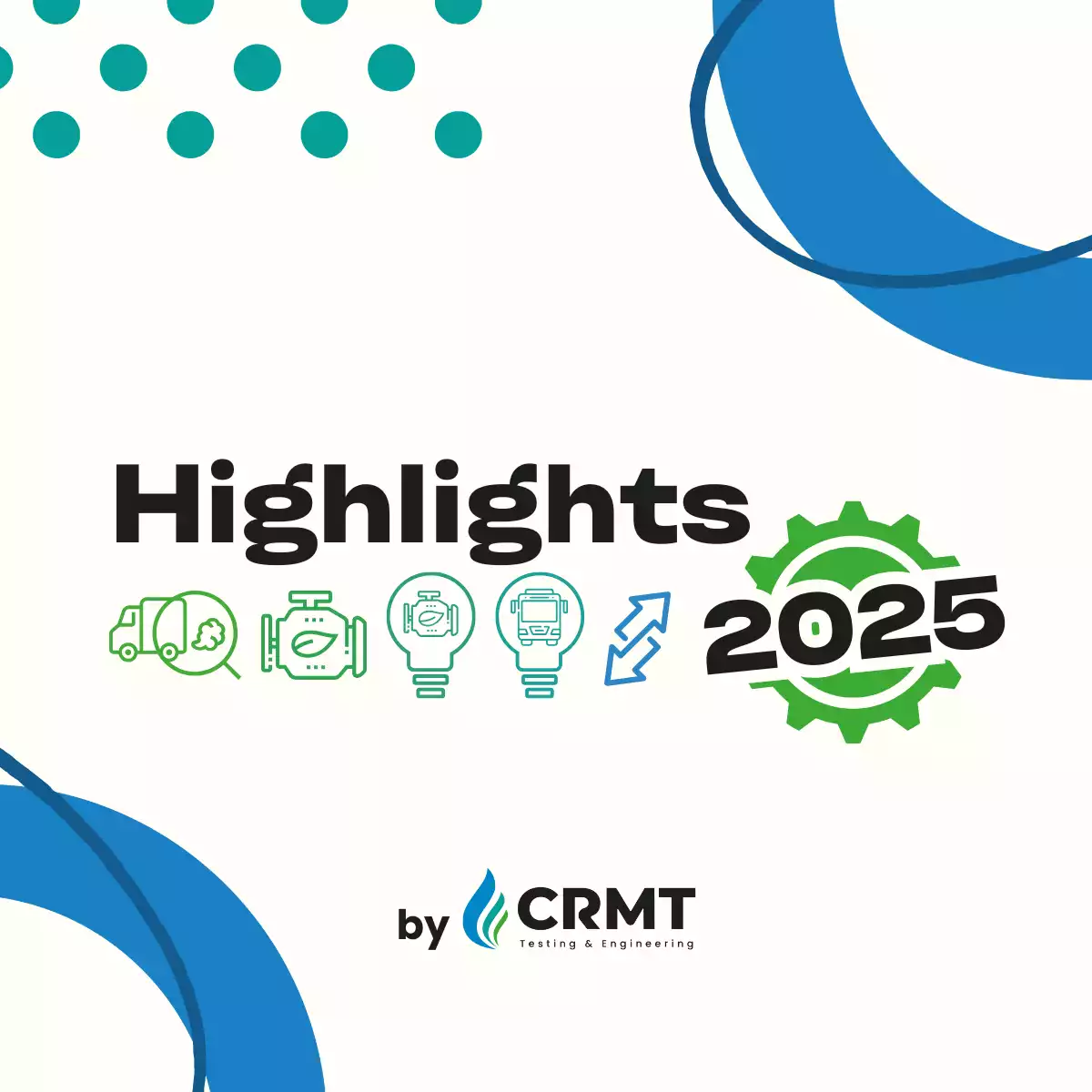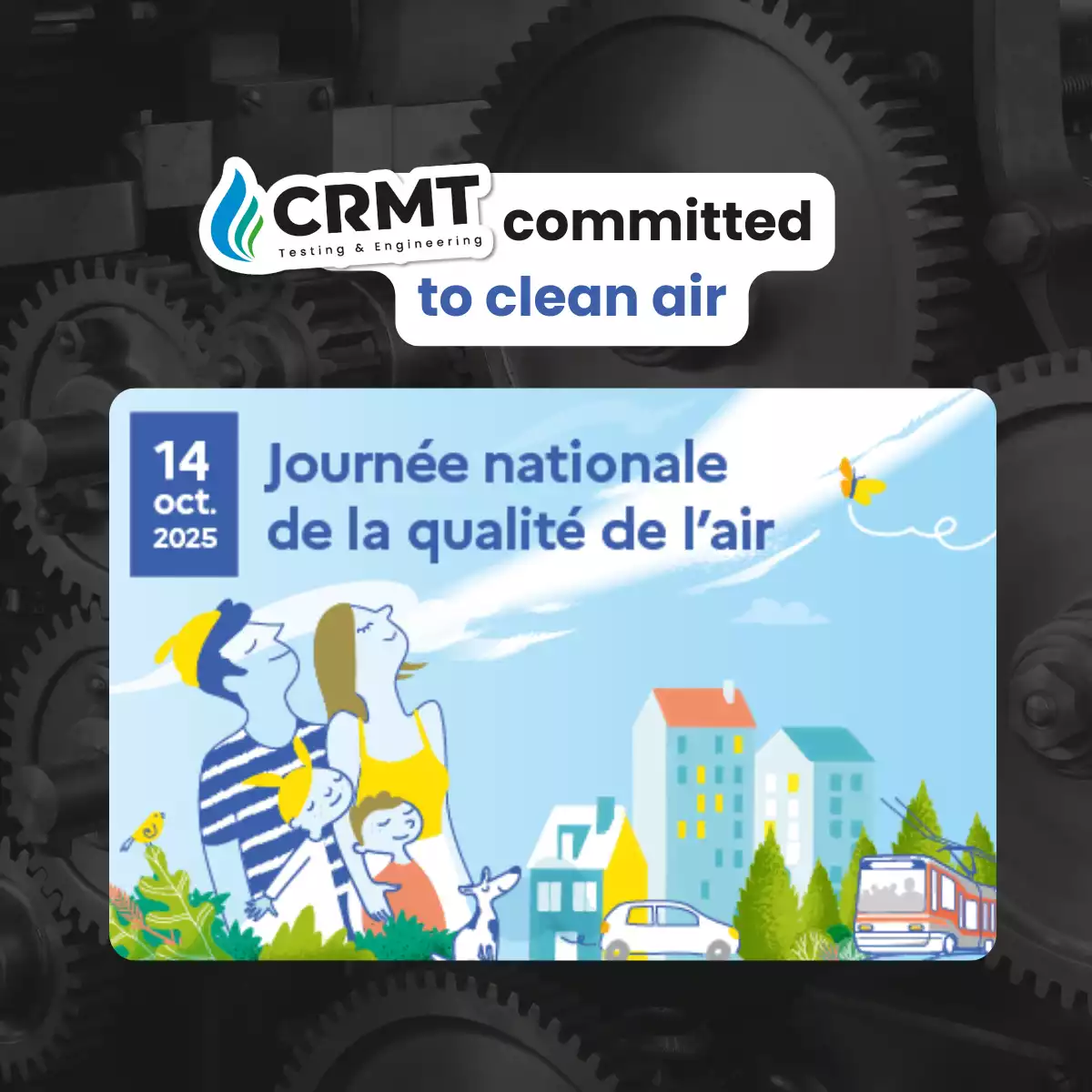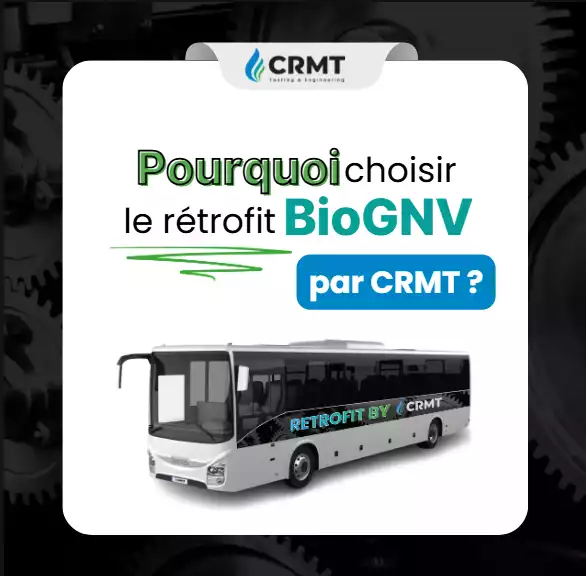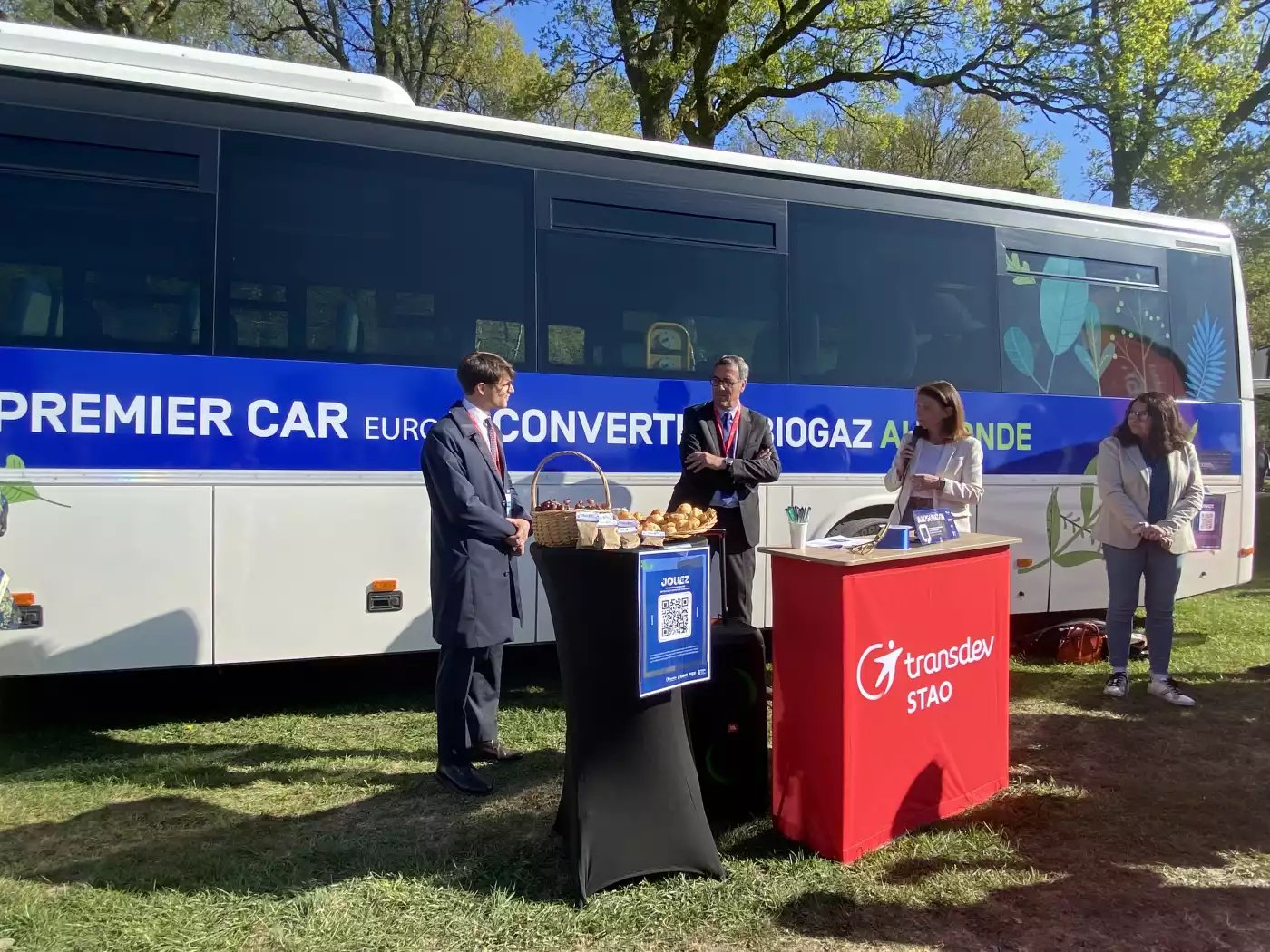
- Gain hands-on expertise in hydrogen propulsion systems.
- Explore solutions for converting thermal vehicles to hydrogen.
- Train in advanced engine control technologies.
✅ Reducing carbon emissions: Contribute to a cleaner and more sustainable mobility.
✅ Accessing low-emission zones (LEZs): Comply with new environmental regulations.
🔹 Experiment with innovative solutions for the energy transition.
🔹 Develop real-world projects aligned with industry challenges.
👉 Contact us to explore collaboration opportunities!
More news

07 Jan 2026 - BioNGV retrofit, H2 engine testing, pollutant emissions measurement: 2025, a milestone year for CRMT
In 2025, CRMT reached major milestones in the energy transition of transport, with the type approval of the first BioNGV retrofit kit for Euro VI coaches, the development of hydrogen engine testing, and the deployment of pollutant emissions measurement campaigns across France and Europe. These advances confirm CRMT’s role as a key player in innovation and transport decarbonization.

14 Oct 2025 - CRMT acts in favour of air quality
On the occasion of the National Air Quality Day, CRMT reaffirms its commitment to cleaner air. With its expertise in alternative fuel engines and emission measurement, the company takes concrete action to reduce transport-related pollution.

01 Aug 2025 - Why choose BioCNG retrofit to green your coach fleet?
What if you could decarbonize your coach fleet without buying new vehicles?
Discover how BioCNG retrofit cuts emissions while keeping operating costs under control.

12 Apr 2025 - Inauguration of a world first in Sarthe: the first Euro VI Diesel coach converted to BioGNV by CRMT.
The first Euro VI Diesel school coach retrofitted to BioGNV was inaugurated on April 11 in Sillé-le-Guillaume—an innovation led by CRMT, Transdev, the Pays de la Loire Region, and GRDF. This concrete, sustainable, and scalable solution represents a major step forward in the decarbonization of school transport.